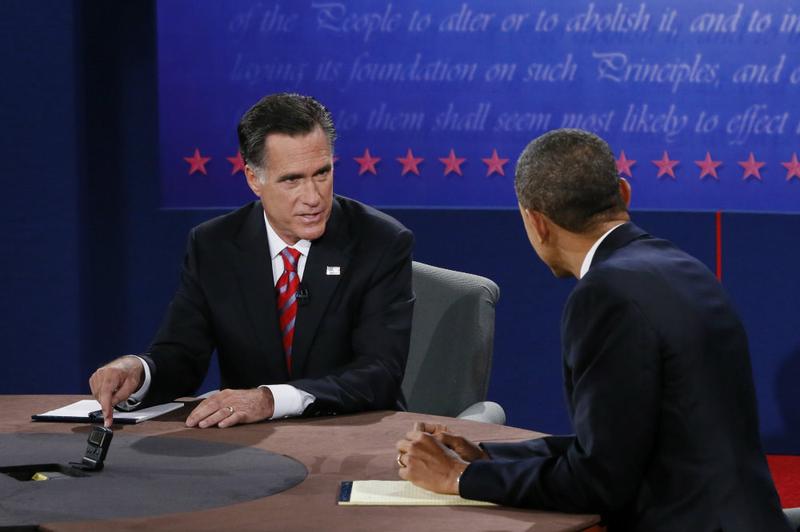
The key take-away from the foreign policy debate was that Mitt Romney agreed frequently with the Obama Administration's policies. He agreed on the use or drones in fighting terrorism. He agreed on the withdrawal schedule of 2014 for bringing home American troops from Afghanistan - even saying he agreed with the commanders on the ground on this schedule, which he had never done before.
After the debate, Romney's spin masters, including former Minnesota Senator Norm Coleman, had a very difficult time after the debate explaining how Romney's foreign policy would be different from Barack Obama's.
Romney definitely played the softer, kinder leader who would use a diplomatic solution backed by military strength rather than the other way around, which had been the impression up to this evening. It was a good debate for Romney because he needed to play it safe and not scare voters, which he did successfully.
Interestingly Romney did not attack the president on the attack on the U.S. consulate in Benghazi, Libya. I guess that one had been milked for all it was worth. I also have the sense that voters are not reacting positively to the endless and aggressive pursuit of this issue by the likes of Rush Limbaugh, Fox, and by the Republican House members holding hearings and demanding an investigation of what went wrong. I guess Romney remembered that, “it's the economy, stupid.” Benghazi clearly was not working for the Republicans.
Another lowlight for Romney was the correct accusation that he was all over the map - literally! At one point he said Syria is Iran's route to the sea. Syria does not even border on Iran. And how about that The Persian Gulf coastline of 1,4000 miles which Iran has? This glitch, which came early in the debate, produced the flurry of Tweets from this debate. The Romney spinners said Romney meant Iran's route to the Mediterranean Sea, specifically.
“President Obama kept Romney on the defensive in the final debate” read the Washington Post headline. Polls showed that the public clearly agreed. The only question is whether this was a plus or whether it made Obama seemed like a bully.
Obama pulled the “I am Commander in Chief” several times trying to establish himself as the leader. Speech analysis agreed that Romney did not seem as self-confident but did make a good case that the U.S. economy is crucial to a strong foreign policy.
Romney made the case that the U.S. navy has fewer ships than in 1916. Obama launched back with “We also have fewer horses and bayonets, we have aircraft carriers and submarines.” So I we don't need as many ships. “Horses and bayonets” also was Tweeted out. It did seem somewhat condescending but it was a good line. The CNN anchors asked Obama surrogates, “Doesn't this hurt Obama in places like Virginia” because there are so many Navy veterans and active duty. That seemed like a far stretch to me.
Obama was clearly annoyed by Romney's statement that after getting elected Obama went “on an apology tour” of the Middle East, apologizing for America's foreign policy.
Obama reamed Romney on his earlier statement that Russia is the biggest threat not terrorism. Obama said Romney seemed to think that it was “The 1980's calling” in reference to the Cold War.
On China there was an interesting dance around the question of how to deal with human rights, currency manipulation, theft of intellectual property and other issues. Romney seemed to back off his early very hard line about calling out China publicly on these issues. As with others, on this one the two candidates seemed to be coming closer in their proposed policies.
Early polls showed Obama winning the debate overall by 48 percent to 40 percent. When women were asked who won the debate here was the result - 59 percent Obama, 39 percent Romney. Another poll question was “who did the debate make you more likely to vote for” and the winner was “neither” by 50 percent.
Did the debate really matter? We will see how the polls now trend over the next two weeks.